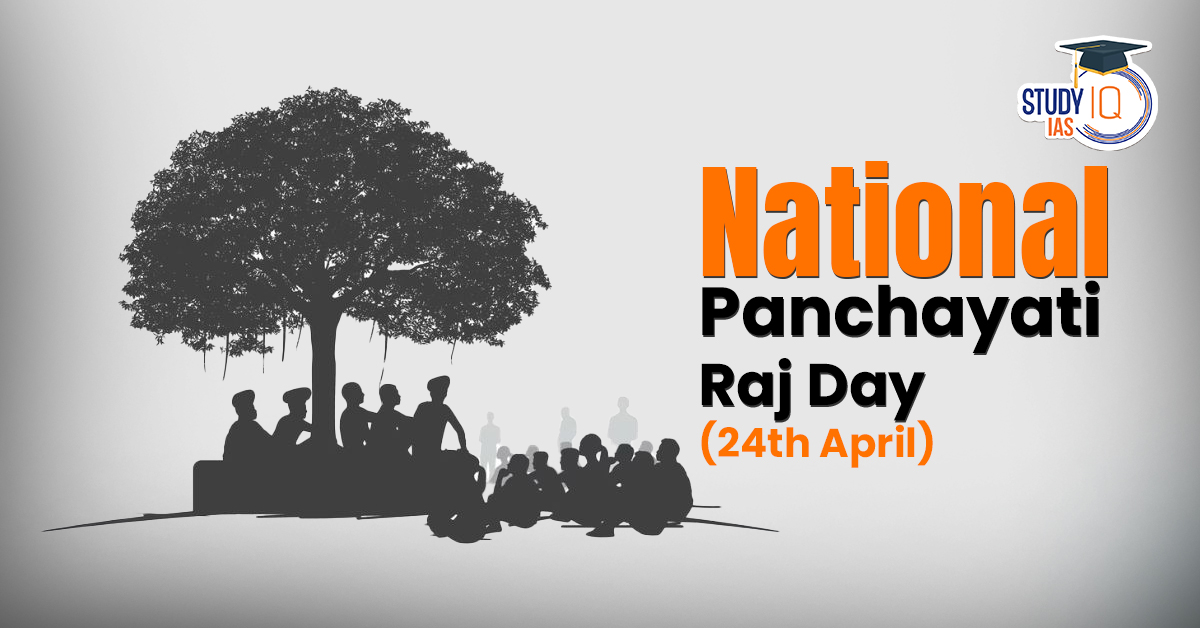Table of Contents
National Panchayati Raj Day is an important occasion celebrated every year on April 24th in India. This day marks the historical implementation of the 73rd Constitutional Amendment Act in 1993, which gave constitutional status to the Panchayati Raj system. The day celebrates the principles of decentralization and local governance, empowering rural citizens to actively participate in the development of their villages and communities. Let’s dive into the history, significance, and celebrations of National Panchayati Raj Day.
What is Panchayati Raj?
In India, Panchayati Raj refers to the system of local self-governance where Panchayats, or local councils, administer and oversee the governance of villages, blocks, and districts. The three-tier system of Panchayati Raj is structured as follows:
- Gram Panchayat (Village level)
- Panchayat Samiti (Block level)
- Zila Parishad (District level)
These institutions play a crucial role in the administration and development of rural areas, enabling citizens to have a say in local governance and ensuring their participation in the decision-making process.
History of National Panchayati Raj Day
Origins and Evolution
The roots of Panchayati Raj can be traced back to 1957, when the Balwantrai Mehta Committee was formed to examine the system of local self-governance. Based on its recommendations, the three-tier Panchayati Raj system was established in India, comprising Gram Panchayats at the village level, Panchayat Samitis at the block level, and Zila Parishads at the district level.
In 1959, Rajasthan became the first state to implement the Panchayati Raj system. The first Prime Minister of India, Jawaharlal Nehru, inaugurated the system in Nagpur, setting a precedent for other states to follow.
The 73rd Constitutional Amendment
In 1992, the 73rd Constitutional Amendment Act was passed, making the Panchayati Raj system a constitutional entity. This amendment aimed at:
- Giving legal recognition to Panchayats.
- Empowering them with financial autonomy.
- Mandating regular elections to ensure active participation of citizens.
The 73rd Amendment came into force on April 24, 1993, and since then, this date has been celebrated annually as National Panchayati Raj Day. The passage of this amendment was a milestone in India’s journey towards decentralizing power and ensuring inclusive governance at the grassroots level.
Significance of National Panchayati Raj Day
1. Empowerment of Rural Citizens
The primary objective of National Panchayati Raj Day is to highlight the importance of local governance and to empower citizens, particularly in rural areas, to participate actively in governance. This day brings awareness to the role of Panchayats in improving the quality of life, providing basic services, and addressing the challenges faced by rural communities.
2. Strengthening Democracy at the Grassroots Level
The celebration of National Panchayati Raj Day emphasizes the importance of democracy at the grassroots level. The Panchayati Raj system allows citizens to elect representatives who are directly responsible for the development of their communities. This promotes transparency, accountability, and a sense of ownership in the governance process.
3. Promoting Rural Development
National Panchayati Raj Day serves as a reminder of the ongoing efforts to ensure the development of rural India. The Panchayati Raj institutions play a pivotal role in sectors like education, health, sanitation, infrastructure, and poverty alleviation. It also fosters rural self-reliance by providing local solutions to local problems.
4. Supporting Women and Marginalized Communities
The 73rd Amendment mandates a reservation system for women, Scheduled Castes (SC), and Scheduled Tribes (ST) in Panchayati Raj institutions, ensuring their participation in decision-making. This move is crucial in fostering inclusivity and empowering women and marginalized communities.
How is National Panchayati Raj Day Celebrated?
Prime Minister’s Address
On National Panchayati Raj Day, the Prime Minister of India addresses the representatives of the Gram Panchayats across the country. This direct communication allows the Prime Minister to discuss the progress of Panchayats, address their concerns, and encourage further development initiatives. It also provides an opportunity for Panchayat representatives to share their achievements and challenges.
Awards and Recognition
The Government of India organizes various awards to recognize and honor the outstanding contributions of Panchayats to rural development. Some notable awards include:
- Nanaji Deshmukh National Gaurav Gram Sabha Award
- Devi Lal Award These awards highlight the exceptional work done by Panchayats in promoting sustainable development and improving the standard of living in their respective regions.
Workshops and Seminars
The Ministry of Panchayati Raj organizes workshops, seminars, and discussions on key issues affecting the Panchayati Raj system. These events focus on promoting innovative solutions for rural development, including the use of technology, financial management, and effective governance.
Promotion of Digital Panchayat
With the advent of Digital India, the government has been actively promoting the use of technology in Panchayats. On National Panchayati Raj Day, special emphasis is placed on initiatives like the e-Panchayat Project and the SVAMITVA Scheme to enhance transparency, accountability, and efficiency in local governance. These initiatives enable Panchayats to provide better services to the public, promote e-Governance, and ensure data-driven decision-making.
Key Initiatives for Empowering Panchayats
1. e-Panchayat Project
The e-Panchayat Project aims to digitize the processes within Panchayats, making administrative tasks more efficient and transparent. This initiative ensures easy access to government services, enhances accountability, and encourages participation in decision-making.
2. SVAMITVA Scheme
The SVAMITVA Scheme (Survey of Villages and Mapping with Improvised Technology in Village Areas) aims to provide property rights to rural citizens by mapping rural properties using modern technology. This scheme enables villagers to access formal credit and contribute to the economic development of their communities.
3. Financial Autonomy
Panchayats have been empowered with financial autonomy to carry out development activities at the grassroots level. Funds are allocated to Panchayats for specific projects, which are directly managed by local representatives, ensuring that the funds are used effectively for the benefit of the community.
Future of Panchayati Raj System
With the ongoing support from the Government of India, the Panchayati Raj system is expected to continue evolving. The future of Panchayati Raj lies in:
- Digital Empowerment: Continued integration of technology to improve efficiency and transparency.
- Financial Strengthening: Enhanced financial autonomy for Panchayats to implement large-scale development projects.
- Sustainable Development: Focus on sustainable development practices, including environmental conservation and green initiatives.
- Decentralized Planning: Ensuring that development is tailored to the needs of individual villages and communities.
Conclusion
National Panchayati Raj Day is more than just a day of commemoration; it is a celebration of India’s commitment to democratic decentralization and local self-governance. The Panchayati Raj system is a cornerstone of rural development, ensuring that every citizen, regardless of their background, has a role in shaping the future of their community. By continuing to support and empower Panchayats, India is taking significant strides toward inclusive development and a more democratic society.
Whether it’s through the use of technology, financial autonomy, or recognizing the efforts of grassroots leaders, National Panchayati Raj Day serves as a reminder of the importance of local governance in achieving sustainable and equitable development for all.


 World Immunization Week (24 to 30 April)...
World Immunization Week (24 to 30 April)...
 Understanding Type 5 Diabetes: The Malnu...
Understanding Type 5 Diabetes: The Malnu...
 Digital Bharat Nidhi Boost to Rural Tele...
Digital Bharat Nidhi Boost to Rural Tele...






















